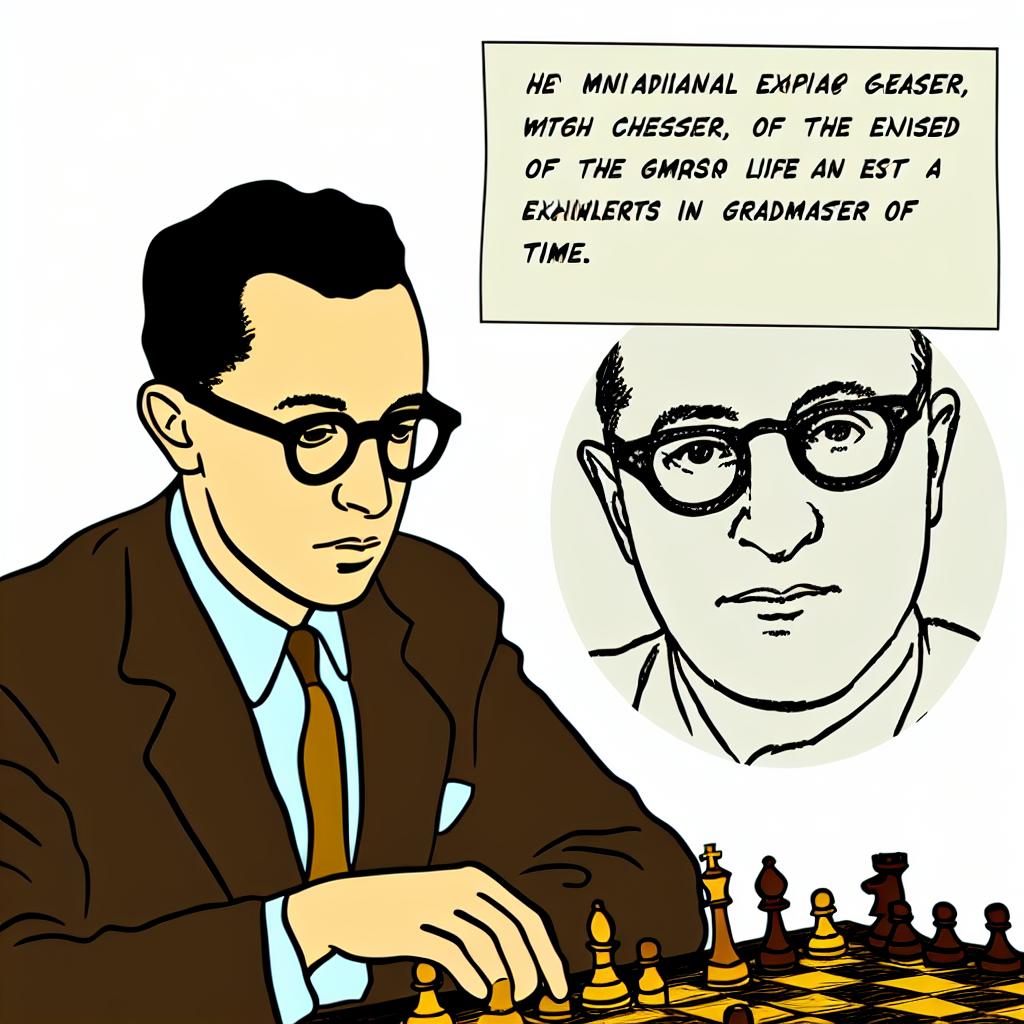Contents
Mikhail Botvinnik: A Pillar of Chess History
Mikhail Botvinnik, a distinguished figure in the world of chess, was one of the most influential players of the 20th century. But his legacy extends far beyond his achievements on the chessboard. Botvinnik was not only a remarkable player but also contributed significantly as a teacher and chess theorist, leaving a lasting impact on the sport. His journey from a beginner to a chess legend provides valuable insights into his intellectual rigor and innovative thinking.
Early Life and Beginnings
Botvinnik was born on August 17, 1911, in Kuokkala, then part of the Russian Empire. He was introduced to chess relatively late, at the age of 12. Despite this, he demonstrated a remarkable aptitude for the game, quickly progressing to more advanced levels. By his teenage years, Botvinnik was actively participating in local tournaments, illustrating his rapid ascent in the chess community. His early exposure to competition helped him hone his skills and develop a strategic mindset that would prove instrumental in his future success.
Rise to Prominence
During the 1930s, Botvinnik’s career began to soar. His notable victory at the Soviet Chess Championship in 1931 was a turning point, establishing him as a formidable player in the Soviet Union and beyond. This achievement underscored his strategic prowess and innovative approach to chess, which set him apart from his contemporaries. Botvinnik’s ability to adapt and evolve his strategies contributed significantly to his rise to prominence. His matches during this period showcased not only his technical skills but also his psychological acumen in handling high-pressure situations.
World Champion Achievements
Botvinnik achieved the pinnacle of his career by becoming the sixth World Chess Champion in 1948. He claimed the title by winning the World Chess Championship tournament organized following the death of Alexander Alekhine. Botvinnik held the World Champion title, albeit with some interruptions, until 1963. His tenure as World Champion was marked by a series of intense and closely contested matches. Particularly noteworthy were his games against Vasily Smyslov, Tigran Petrosian, and Mikhail Tal. These matches not only demonstrated Botvinnik’s resilience and strategic depth but also cemented his status as a central figure in chess history.
Innovations and Theories
Beyond his successes in tournaments, Botvinnik was renowned for his theoretical and analytical contributions to the game of chess. He was a pioneer in developing strategies that laid the groundwork for modern chess. His commitment to understanding and advancing chess theory was apparent in his numerous writings and publications, which continue to be highly regarded in the chess community. Botvinnik’s analytical mindset and methodical approach enabled him to dissect positions and devise strategies that were both innovative and effective.
Indeed, his work laid the foundation for modern chess strategy. He focused on the importance of preparation, the value of studying past games, and the need for a deep understanding of different positions. His writings and publications remain highly influential and are considered essential reading for those looking to deepen their understanding of the game.
Botvinnik as a Mentor
Mikhail Botvinnik’s contributions extended beyond his personal achievements on the chessboard. As a mentor, he played a crucial role in shaping the careers of some of the greatest players in chess history. Botvinnik established a chess school that became a breeding ground for future world champions. Among his most distinguished students were Anatoly Karpov, Garry Kasparov, and Vladimir Kramnik. His approach to training was rigorous and innovative, emphasizing the importance of detailed analysis and a comprehensive understanding of each position. His mentorship not only honed the skills of his students but also instilled in them a deep respect for the game’s complexities.
Botvinnik’s coaching style was characterized by a blend of discipline and creativity. He encouraged his students to think critically, question assumptions, and explore new ideas. Under his guidance, many players developed not only as competitors but also as thinkers, contributing to the intellectual richness of the chess community. The success of his students on the global stage stands as a testament to Botvinnik’s influence as an educator and mentor.
Legacy and Influence
The legacy of Mikhail Botvinnik is one that continues to resonate in the world of chess today. His strategic innovations, along with the players he mentored, have left an indelible mark on the game. Botvinnik’s methodical and scientific approach to chess paved the way for future generations, fostering a new era of analytical and strategic depth in the sport.
His influence is evident not only in the players he trained but also in the broader community of chess enthusiasts who have studied his games and theories. The principles he established continue to guide and inspire players around the world. Botvinnik’s contributions helped elevate chess to new heights, emphasizing intellectual discipline and strategic sophistication.
Conclusion
Mikhail Botvinnik’s contributions to the world of chess are immeasurable. His unique blend of intellectual rigor, competitive spirit, and innovative thinking helped shape the evolution of modern chess. Anyone interested in the history of chess or its strategic development would find Botvinnik’s life and work an essential area of study. For those seeking an in-depth exploration of his achievements and influence, there are numerous resources and books available that detail his strategies, career, and contributions to the game. The enduring impact of his work serves as a testament to the profound and lasting influence of Mikhail Botvinnik on the world of chess.

